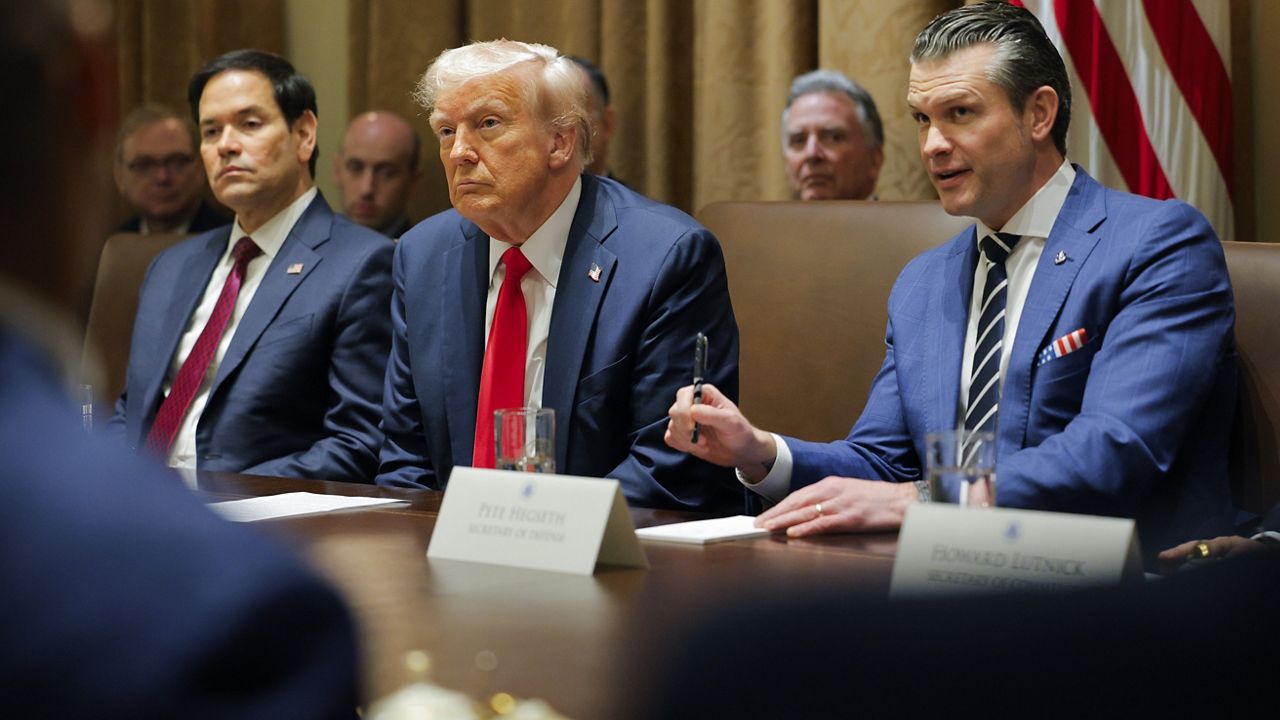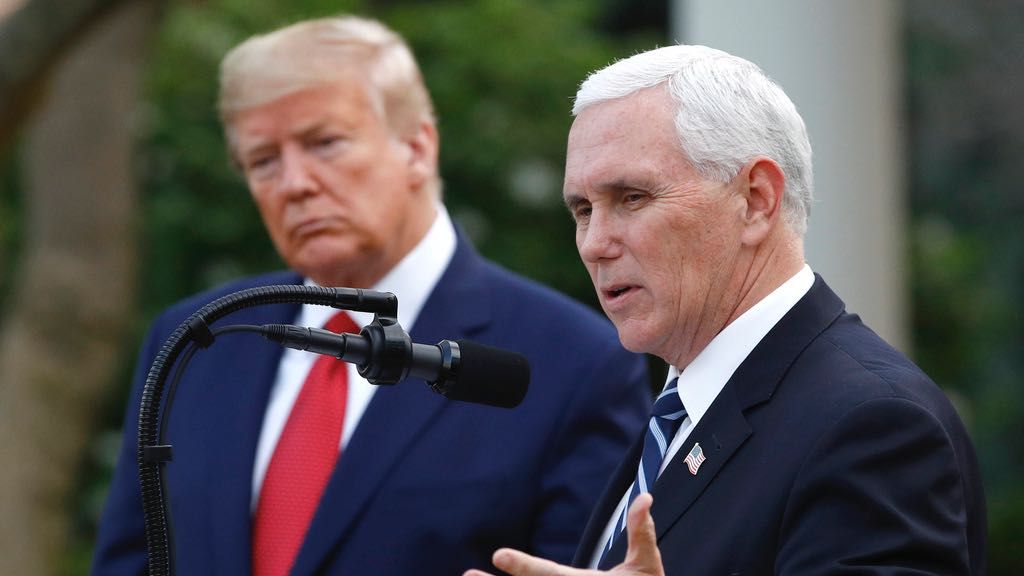The House voted Thursday to hold Steve Bannon, a longtime ally and aide to former President Donald Trump, in contempt of Congress after he defied a subpoena from a committee investigating the violent Jan. 6 Capitol insurrection.
The resolution passed 229-202, with nine Republicans joining every House Democrat in favor of the measure. Reps. Liz Cheney of Wyoming and Adam Kinzinger of Illinois, the only GOP members of the Jan. 6 panel, were among the small group of Republicans that voted to hold Bannon in contempt.
The other Republicans who voted in favor of the contempt measure:
- Rep. John Katko, R-N.Y.
- Rep. Anthony Gonzalez, R-Ohio
- Rep. Jaime Herrera Beutler, R-Wash.
- Rep. Nancy Mace, R-S.C.
- Rep. Fred Upton, R-Mich.
- Rep. Peter Meijer, R-Mich.
Seven of those Republicans voted to impeach then-President Trump for his role in the insurrection, in addition to Reps. Fitzpatrick and Mace.
Rep. Greg Pence, brother of former Vice President Mike Pence, who was inside the Capitol when a mob of Trump supporters stormed the building to interrupt the certification of Joe Biden's win, did not vote on the measure.
Members of the select committee say Bannon is the only person they have sought information from who is not engaging with the panel. The former White House chief strategist is refusing to cooperate with the investigation at the direction of Trump, who is claiming executive privilege.
The Jan. 6 panel voted Tuesday to recommend the contempt charges against Bannon, citing reports that he spoke with Trump before the insurrection, promoted the protests that day and predicted there would be unrest.
“We believe Mr. Bannon has information valuable to our probe,” committee Chairman Bennie Thompson, D-Miss., said Thursday. “He was deeply involved in the so-called ‘Stop the Steal’ campaign. He was reportedly in a war-room meeting the day before the riot and had been pressuring the former president to try to stop the counting of the Electoral College ballots. He himself warned that all hell would break loose on Jan. 6. We believe he can help inform our inquiry as to how the riot came together and what it was intended to achieve.”
Thompson said the House must make it clear that no one is above the law.
“We need to take a stand for the integrity of the select committee's investigation and for the integrity of this body,” he said. “What sort of precedent would it set for the House of Representatives if we allow a witness to ignore us flat out without facing any kind of consequences?”
"Mr. Bannon’s own public statements make clear: He knew what was going to happen before it did," Cheney said on the floor of the House.
"[Bannon] must have been aware of, and may well have been involved in, the planning of everything that played out on that day," Cheney said. "The American people deserve to know what he knew and what he did."
Republicans claimed the Bannon subpoena is invalid because it serves no legitimate legislative process. Rep. Jim Banks, R-Ind., accused the committee of “an unconstitutional political investigation, a sham investigation conducted by a sham committee.”
Banks, along with Rep. Jim Jordan, R-Ohio, had been chosen by House Minority Leader Kevin McCarthy, R-Calif., for the select committee but were blocked by House Speaker Nancy Pelosi, D-Calif., over their votes against certifying the election for Joe Biden. In response, McCarthy pulled all of his GOP picks for the panel, leaving just Cheney and, later, Kinzinger, the only Republican members of the committee.
"There's important work that frankly we wish they were doing," Banks said. "Like answering why this campus was left unprotected and what we are doing to keep it from happening again. That hasn't happened yet."
Rep. Rodney Davis, R-Ill., was among the Republicans who accused Democrats of not examining the security lapses at the Capitol on Jan. 6.
“There are serious security vulnerabilities that have not been addressed by this House, Davis said. "And this is what the majority has decided to spend its time on: Holding a private citizen who wasn't even part of the administration at the time in contempt for refusing to comply with House Democrats subpoenas."
Thompson pointed out that Capitol and Metropolitan police officers testified in the committee’s first meeting.
The Jan. 6 committee has vowed to move swiftly and forcefully to punish anyone who won't cooperate with the probe. It’s now up to the Justice Department — and potentially the courts — to determine what happens next.
There’s still considerable uncertainty about whether the Justice Department will prosecute Bannon, despite Democratic demands for action.
During testimony before the House Judiciary Committee on Thursday, Attorney General Merrick Garland told lawmakers that the Justice Department "will apply the facts and the law and make a decision" about whether to pursue a case against Bannon.
The outcome could determine not only the effectiveness of the House investigation but also the strength of Congress’ power to call witnesses and demand information — factors that will certainly be weighing on Justice officials as they determine whether to move forward. While the department has historically been reluctant to use its prosecution power against witnesses found in contempt of Congress, the circumstances are exceptional as lawmakers investigate the worst attack on the U.S. Capitol in two centuries.
Democrats are pressuring Justice to take the case, arguing that nothing less than democracy is on the line.
“The stakes are enormous,” Maryland Rep. Jamie Raskin, a member of the panel, told The Associated Press. “The Congress of the United States under Article One has the power to investigate in order to inform our deliberations about how to legislate going forward. That’s what this is about.”
Raskin, on the floor of the House, noted that the insurrectionists injured more than 140 police officers, "breaking their noses, breaking their necks, breaking their vertebrae, breaking their arms, breaking their legs, breaking their hearts and their spirits."
"We are investigating the attack on American democracy because we are Americans," Raskin said in his remarks. "We are investigating the attack on Congress by domestic enemies of our Constitution because we are sworn to do so by our oaths of office."
In response to a statement from the former president issued Wednesday, which falsely sought to portray Nov. 3, 2020 – Election Day – as the "real insurrection," Raskin said: "No, Mr. Trump, I'm sorry. That's what we call an election in America."
If Congress can’t perform its oversight job, the message sent to “the general public is these subpoenas are a joke,” said Stephen Saltzburg, a George Washington University law professor and former Justice Department official. He said if Garland, a former federal judge whom Saltzburg regards “as one of the most nonpartisan people I know,” doesn't authorize a prosecution, “he’s going to be letting the Constitution, it seems to me, be placed in jeopardy. And it’s way too important for him to let that happen.”
Still, prosecution is not a given. Assuming his post after a turbulent Trump era, Garland has prioritized restoring what he has called “the norms” of the department. On his first day, he told rank-and-file prosecutors that they should be focused on equal justice and not feel pressure to protect the president’s allies or to attack his enemies. He has repeatedly said political considerations shouldn't play a role in any decisions.
And his deputies pushed back — hard — when President Joe Biden suggested to reporters last week that Bannon should be prosecuted for contempt.
“The Department of Justice will make its own independent decisions in all prosecutions based solely on the facts and the law. Period. Full stop,” Garland’s spokesman, Anthony Coley, said Friday, in response to the president’s comments.
The Bannon matter will now be referred to the U.S. attorney’s office in Washington. It’s up to prosecutors in that office whether to present the case to a grand jury for possible criminal charges. The office is run by Channing Phillips, an acting U.S. attorney who had previously served in the position in the Obama administration. Another attorney, Matt Graves, has been nominated for the post, but his nomination is pending in the Senate.
“If the House of Representatives certifies a criminal contempt citation, the Department of Justice, as with all criminal referrals, will evaluate the matter based on the facts and the law, consistent with the Principles of Federal Prosecution,” said Bill Miller, a spokesman for the U.S. attorney’s office in Washington.
The Justice Department has in the past been wary of prosecuting congressional contempt cases, especially when the White House and the House of Representatives are controlled by opposing political parties. During the Obama administration the department declined to prosecute then-Attorney General Eric Holder and former IRS official Lois Lerner following contempt referrals from the Republican-led House. And George W. Bush’s Justice Department declined to charge Harriet Miers after the former White House counsel defied a subpoena in a Democratic investigation into the mass firings of United States attorneys.
In addition, the Justice Department’s Office of Legal Counsel has said in multiple opinions — including one from the 1980s involving Supreme Court Justice Neil Gorsuch's mother Anne Gorsuch, who refused to turn over documents in her capacity as administrator of the Environmental Protection Agency — that the Justice Department has discretion on when to prosecute for contempt, even when receiving a referral from the House.
Still, the Bannon case is different, as Democrats hold both Congress and the White House — and because the committee is investigating a violent insurrection of Trump’s supporters who beat law enforcement officers, broke into the Capitol and interrupted the certification of Biden’s victory.
“What we’re talking about is this massive, violent assault on American democracy," Raskin said.
Even if the department does decide to prosecute, the case could take years to play out — potentially pushing past the 2022 election when Republicans could win control of the House and end the investigation.
And if they don’t prosecute, then the House will likely find another route. A House-authorized civil lawsuit could also take years but force Bannon and any other witnesses to defend themselves in court.
Another option available to Congress would be to try to imprison defiant witnesses — an unlikely, if not outlandish, scenario. Called “inherent contempt,” the process was used in the country’s early years but hasn’t been employed in almost a century.
The Associated Press contributed to this report.








